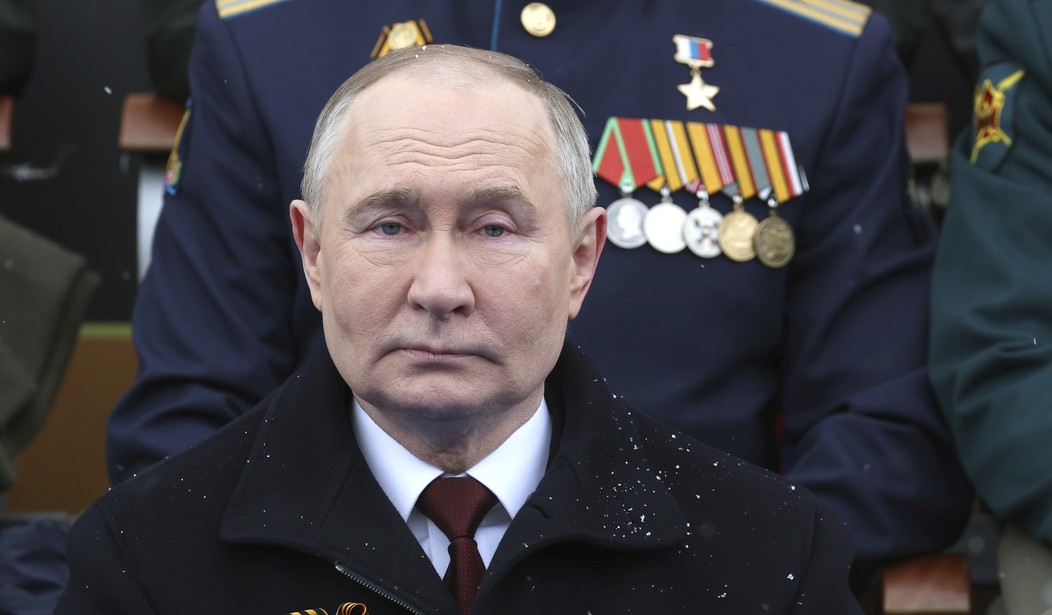Russia is still grinding along in the battle with Ukraine, but if the greater goal was to present Putin as a powerful leader who might be in a position to re-form parts of the USSR, he's losing the war.
The latest blow was the fall of Bashar al-Assad in Syria. Fareed Zakaria writes that Assad's collapse was a real sign of Russian weakness.
Bashar al-Assad’s fall points to a direct lesson: Russia’s growing weakness. Moscow had been Syria’s patron for over half a century. Syria was Russia’s last major client state in the Middle East. Moscow had spent huge amounts of blood and treasure supporting Assad over the past decade.
And yet, there was nothing they could do. Today the Post reports that Russia seems to be pulling out of Syria or at least pulling back.
Russia is dismantling equipment at an air base in Syria and loading it into cargo planes after the ouster of longtime Moscow client Bashar al-Assad, images show.
Captured by Maxar on Friday morning, the images reveal two An-124 cargo planes at Russia’s Hmeimim airfield with their nose cones opened to receive equipment, the commercial firm said...
Russian troops were vacating smaller bases in Manbij and Kobane on Monday, the Syrian news outlet North Press Agency reported this week.
Russia may maintain some bases in the country but no one thinks they look like a dominant power player in the region right now.
“The limits of Russian military power have been revealed,” said Tim Ash, a regional expert at Bluebay Asset Management and a Chatham House fellow.
Turkey is now master of the region. Turkish forces had to step in to rescue stranded Russian generals. Even if Putin succeeds in holding on to his naval base at Tartus – a big if – this concession will be on Ottoman terms and sufferance. “Putin now goes into Ukraine peace talks from a position of weakness,” said Mr Ash.
But it's the Russian economy that may be Putin's Achilles heel right now. The government has held off disaster for two years but it is on shaky ground with inflation up and interest rates now above 20 percent.
That economy held up well for two years but this third year has become harder. The central bank has raised interest rates to 21pc to choke off an inflation spiral. “The economy cannot exist like this for long. It’s a colossal challenge for business and banks,” said German Gref, Sberbank’s chief executive.
Sergei Chemezov, head of the defence giant Rostec, said the monetary squeeze was becoming dangerous. “If we continue like this, most companies will essentially go bankrupt. At rates of more than 20pc, I don’t know of a single business that can make a profit, not even an arms trader,” he said.
Interest rates are being raised by the central bank to discourage people and businesses from spending so much money, thereby fueling inflation further. But the chief offender here is government spending on the war in Ukraine. About 40% of Russian government spending is devoted to that now. Meanwhile, regular people are finding it hard to buy groceries. A recent break in at a market in Russia made international news.
A break-in at a small food store in the Russian city of Yekaterinburg wouldn’t usually make headlines around the world, but this time was different.
CCTV footage from the store, Dairy Place, in early November appears to show the door being smashed and one person rushing over to empty the cash register. The other person makes a beeline for the fridge, plundering 20 kilograms of butter from the chiller, Russian media reported.
The owner of the store said on Telegram that the heist showed butter was now like “gold,” according to a Google translation. CNBC could not independently verify the footage....
“The cost of basic foods has been growing for the last three years. It is getting worse day by day and sped up, especially this year,” Stanislav, a Moscow resident, told CNBC.
Of course the concerns of ordinary people don't mean a lot in Russia. Anyone complaining about the "special operation" in Ukraine and how it connects to inflation could find themselves in prison. Russians know that and the state-controlled media makes sure to keep the two issues separate.
Still, this is not going well for Russia and it seems like president-elect Trump is ready to capitalize on that weakness.
In a social media post after Assad’s fall, Donald Trump said that Russia was in a “weakened state” because of Ukraine and a bad economy, noting that “600,000 Russian soldiers lay wounded or dead, in a war that should never have started.” That is exactly right. He also wrote that it was time for Putin to act, implying that the problem with getting a ceasefire or peace deal is Russia, not Ukraine. This is a refreshing shift from what had seemed in the past his tendency to blame Ukraine for getting invaded.
Putin will want to save face as much as possible but the truth is he's probably eager to get out of this before the situation at home becomes something Kremlin PR can't manage.









Join the conversation as a VIP Member